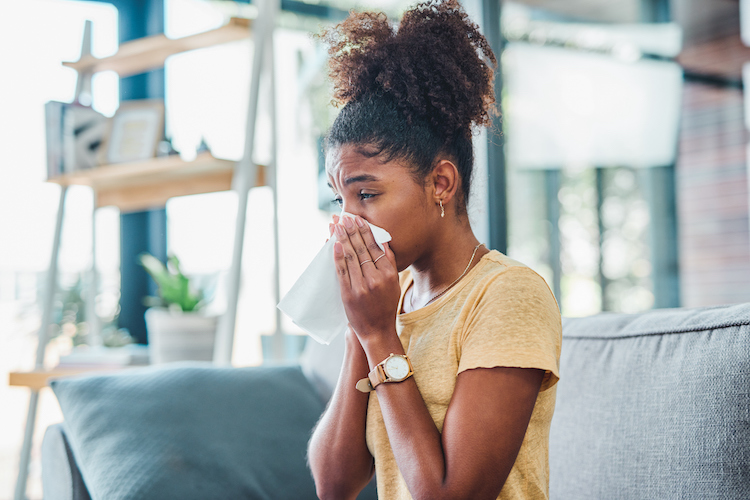- Home
- The Tips & Tricks
- Spring Rains Means More Seasonal Allergies, Tips On How To Get Relief

Spring Rains Means More Seasonal Allergies, Tips On How To Get Relief
Higher than normal amounts of rain this winter and spring may bring extra agony for Phoenix-area allergy sufferers.
“The extra rains can create extra weeds, especially ragweed, which is a known irritant for people with seasonal allergies,’’ said Devin Minor, MD, physician executive at Banner Urgent Care.
Banner Urgent Care, which has locations throughout the Phoenix metro area, has already been treating people with seasonal allergies.
“Your eyes are itchy, your throat can be itchy, your nose is runny. It’s not a lot of fun to have seasonal allergies. They can affect your sleep and overall quality of life,’’ Minior said.
The good news for people with mild to moderate allergies is that they can be treated in their own home via telehealth provided by Banner Urgent Care. Suspected hay fever allergies, along with sinus congestion, are some of the top conditions that can be treated via telehealth, according to Minior.
“During our video visit, we can get a good history from the patient on the problems they have been experiencing and then we can determine whether we are dealing with allergies, cold or another type of respiratory infection and go from there.
“And patients don’t even have to leave their homes to get an accurate diagnosis.’’
Minior added that virtual visits are a great alternative for prescription requests and refills, questions about medical side effects or new non-emergency allergy symptoms.
Here are some tips to help with seasonal allergies:
Reduce your exposure to allergy triggers
- Stay indoors on dry, windy days.
- Avoid lawn mowing, weed pulling and other gardening chores that stir up allergens.
- Remove clothes you’ve worn outside, wash your face and shower to rinse pollen from your skin and hair.
Take extra steps when pollen counts are high
- Check your local TV or radio station, your local newspaper, or the internet for pollen forecasts and current pollen levels. If high pollen counts are forecasted, begin taking allergy medications before your symptoms start.
- Close doors and windows at night
- Avoid outdoor activity in the early morning when pollen counts are highest.
Keep indoor air clean
- Use air conditioning in your house and car.
- If you have forced air heating or air conditioning in your house, use high-efficiency filters and follow regular maintenance schedules.
- Keep indoor air dry with a dehumidifier.
- Use a portable high-efficiency particulate air (HEPA) filter in your bedroom.
- Clean floors often with a vacuum cleaner that has a HEPA filter.
Take over-the-counter remedy
- Oral antihistamines.Antihistamines can help relieve sneezing, itching, a stuffy or runny nose, and watery eyes. Examples are: Zyrtec Allergy, Allegra Allergy or Claritin.
- Corticosteroid nasal sprays.These medications improve nasal symptoms. Examples: Flonase Allergy Relief, Rhinocort Allergy or Nasacort Allergy 24. Talk to your health care provider about long-term use of corticosteroid nasal sprays.
- Cromolyn sodium nasal spray.This nasal spray can ease allergy symptoms by blocking the release of immune system agents that cause symptoms. It works best if treatment is started before exposure to allergens. It’s considered a very safe treatment, but it usually needs to be used 4 to 6 times daily.
- Oral decongestants.Oral decongestants such as Sudafed can provide temporary relief from nasal stuffiness. Talk to your health care provider about whether the use of a decongestant is good for treating your allergy symptoms.
